
Azirud 200 Suspension Strawberry
Manufacturer
Rudiment Life Science Pharmaceutical Pvt Ltd
Salt Composition
Azithromycin (200mg/5ml)
Key Information
Short Description
Azirud 200 Suspension Strawberry is an antibiotic medication commonly given to children for treating a wide range of bacterial infections.
Dosage Form
Oral Suspension
Introduction
Azirud 200 Suspension Strawberry is an antibiotic medication used to treat various bacterial infections in children. It targets infections in the ear, eyes, nose, throat, lungs, skin, and gastrointestinal tract. It is important to complete the entire course of this medicine to prevent the bacteria from multiplying again or causing another infection. This medication should be given with food to avoid an upset stomach. Encourage your child to drink plenty of water if diarrhea develops as a side effect. Azirud 200 Suspension Strawberry is not effective for viral infections, and it should only be used for the current infection as prescribed by a doctor. Immediate medical attention is required if your child develops an itchy rash, facial swelling, or breathing difficulties after taking this medicine.
Directions for Use
Give Azirud 200 Suspension Strawberry with food to avoid an upset stomach. Ensure your child completes the entire course of this medicine.
How it works
Azirud 200 Suspension Strawberry works by interfering with the synthesis of essential proteins required by bacteria to perform important functions. This stops the infection-causing bacteria from growing further and prevents the infection from spreading.
Quick Tips
Your child must complete the entire course of this medicine. Stopping too soon may cause the bacteria to multiply again, become resistant, or cause another infection. Give Azirud 200 Suspension Strawberry with food to avoid an upset stomach. Encourage your child to drink plenty of water in case diarrhea develops as a side effect. Azirud 200 Suspension Strawberry will not be effective for viral infections. However, the doctor may prescribe this medicine in case of a secondary bacterial infection. So make sure to speak to your child’s doctor first. Only give Azirud 200 Suspension Strawberry to your child for their current infection. Never save medicine for future illnesses. Stop the medicine and contact the doctor immediately if your child develops an itchy rash, facial swelling, and breathing difficulties soon after the intake.
Related Medicines

Azibact LR 200 Readymix Suspension
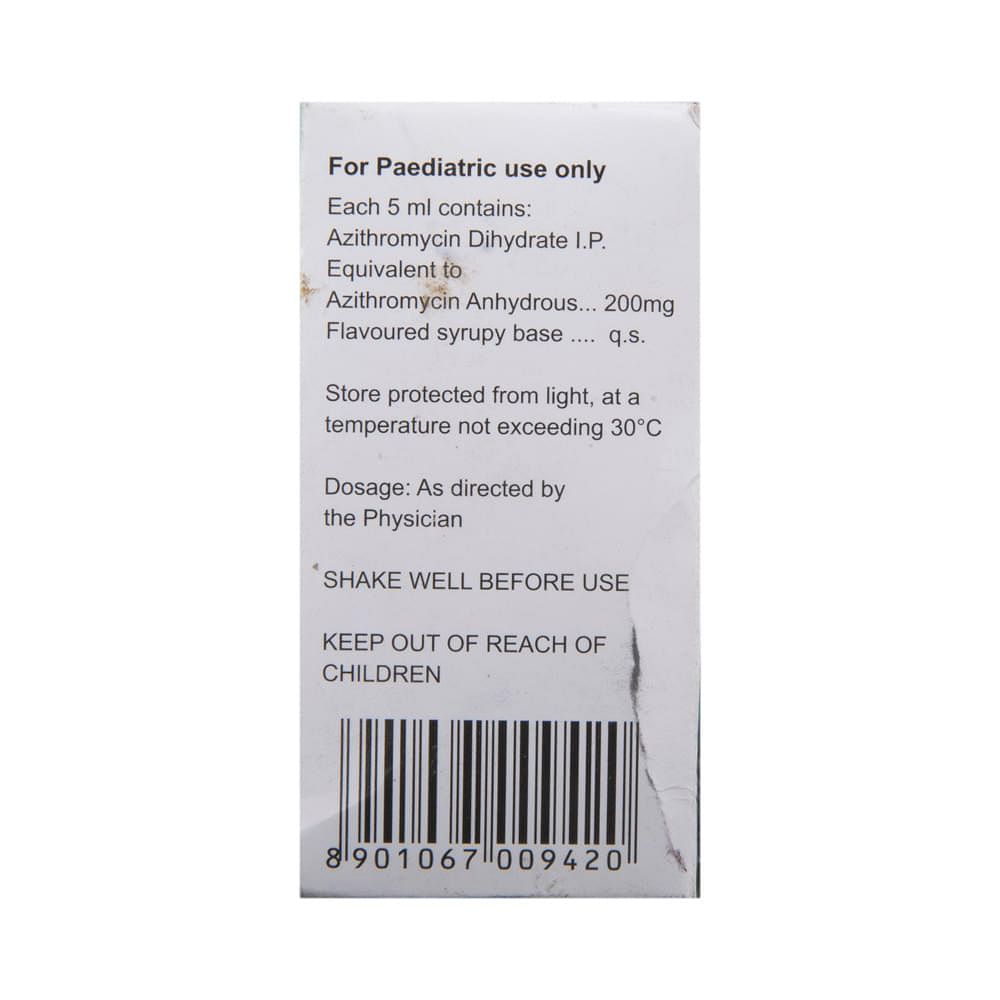
Aziwok 200 Liquid Mango
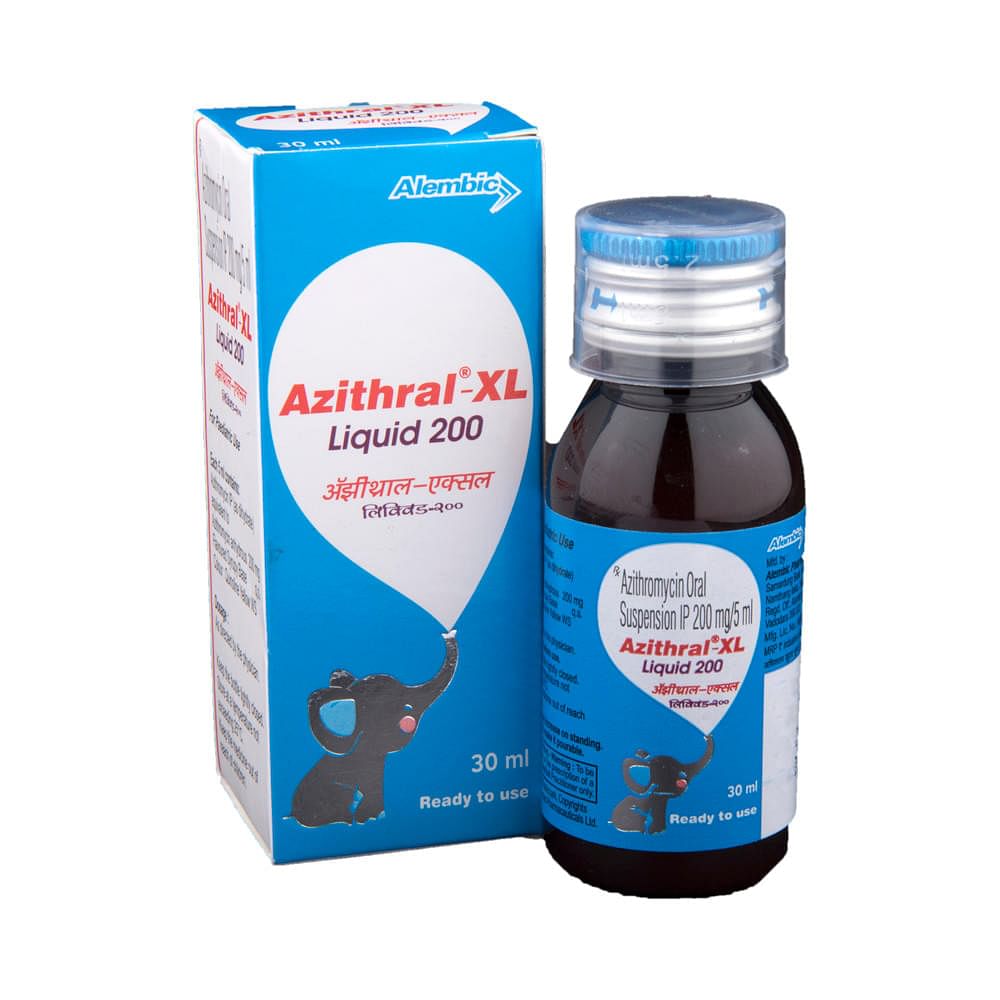
Azithral-XL 200 Liquid
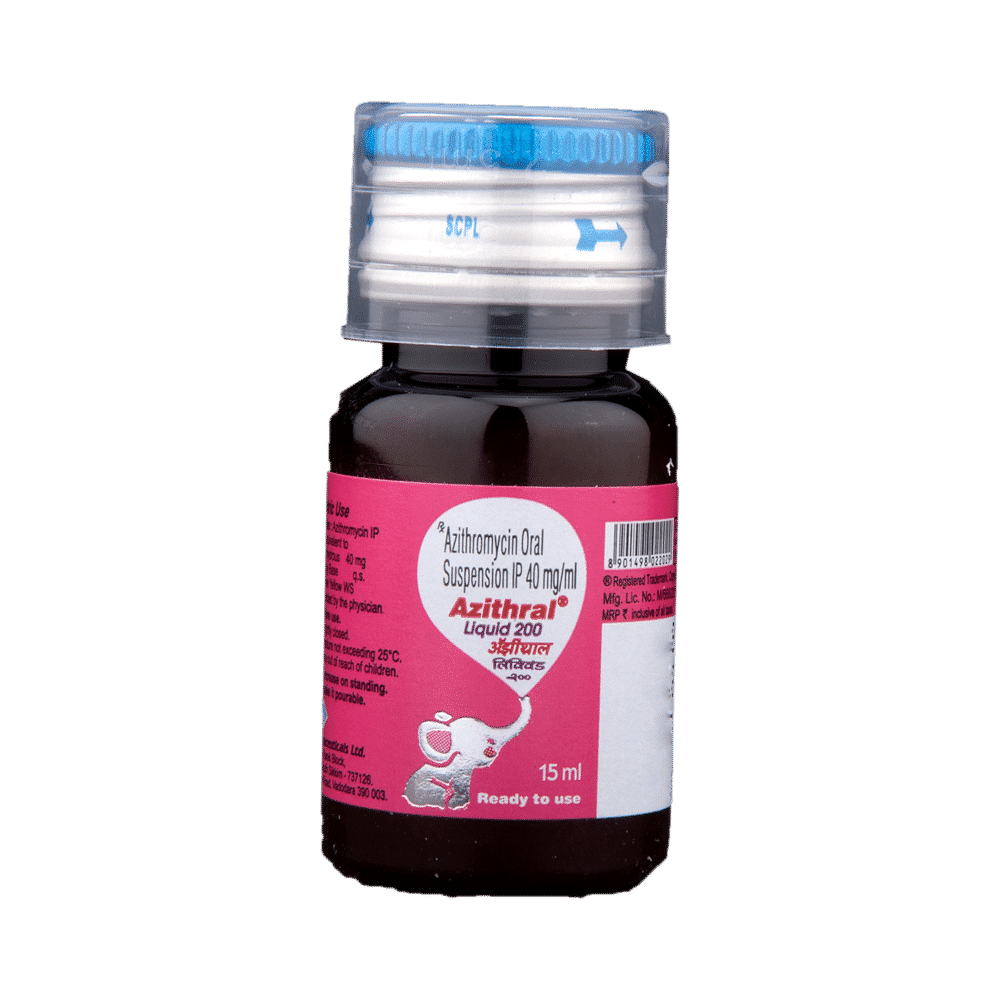
Azithral 200 Liquid
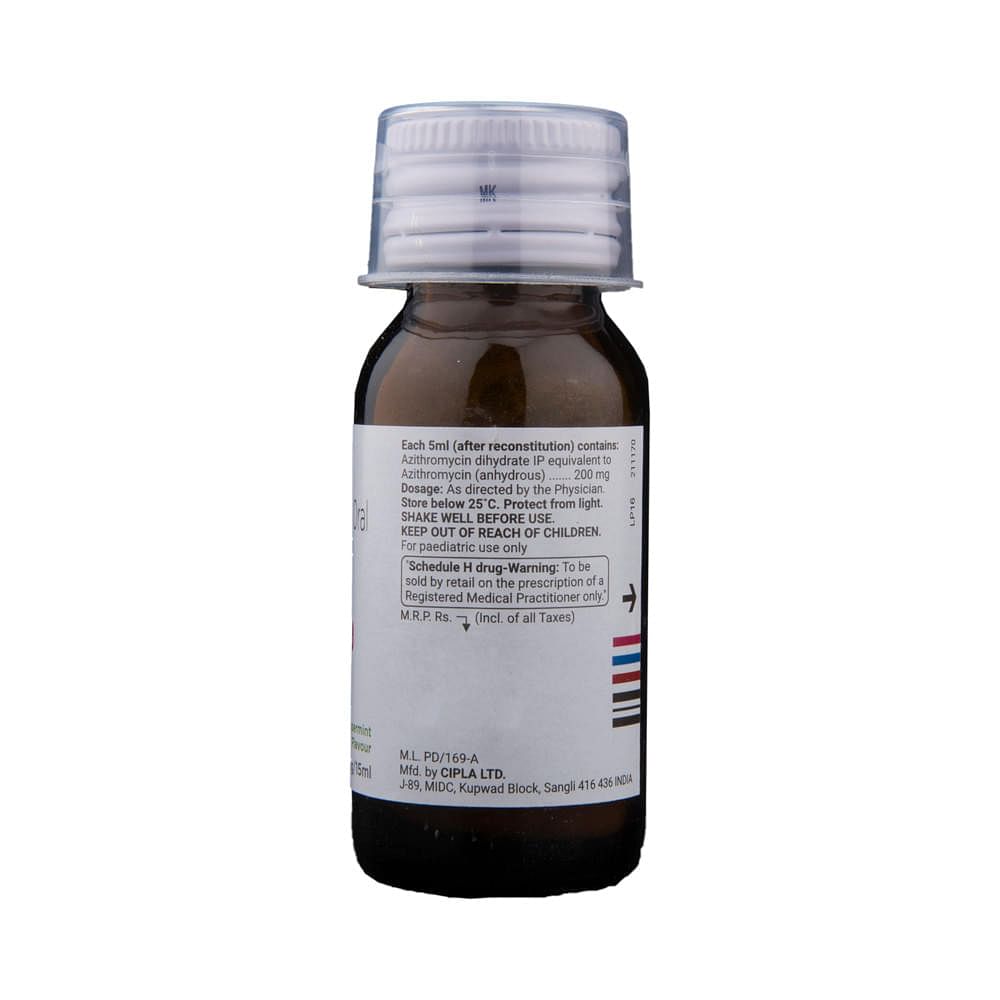
Azee 200 Dry Syrup Peppermint
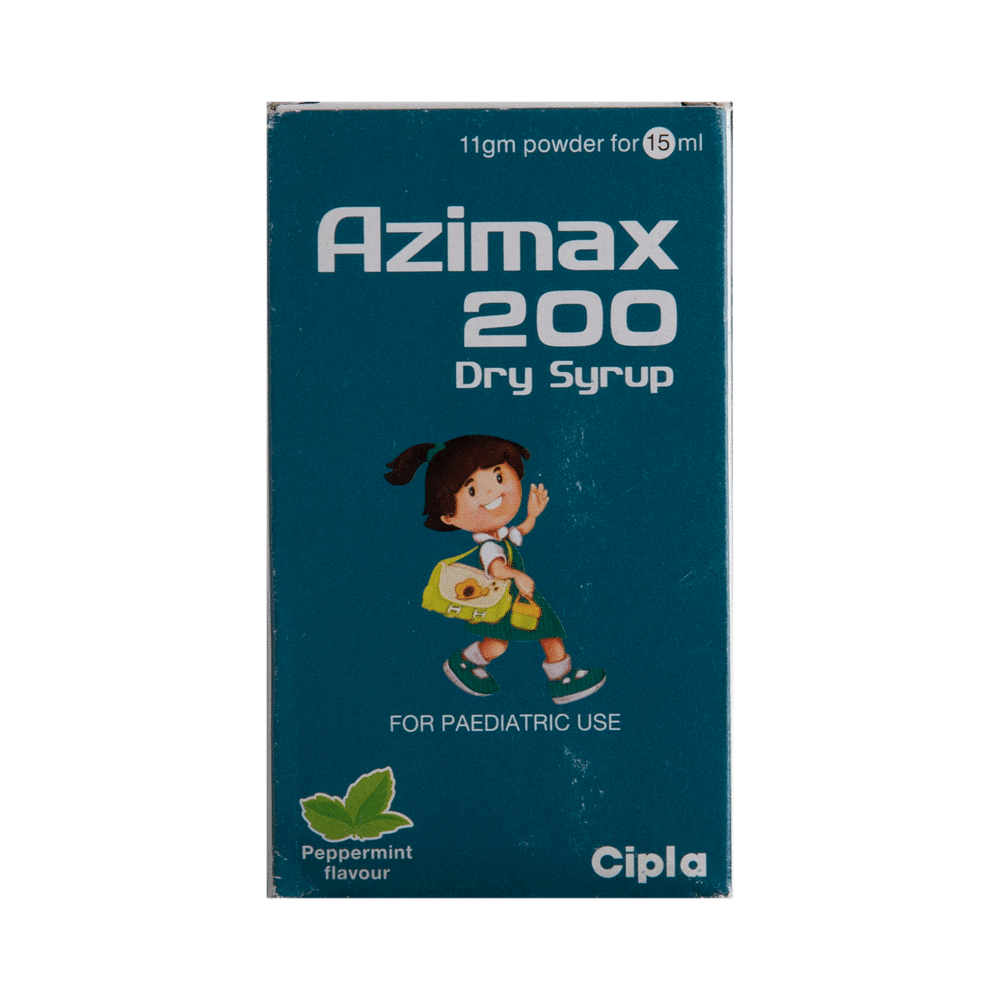
Azimax 200 Dry Syrup Peppermint
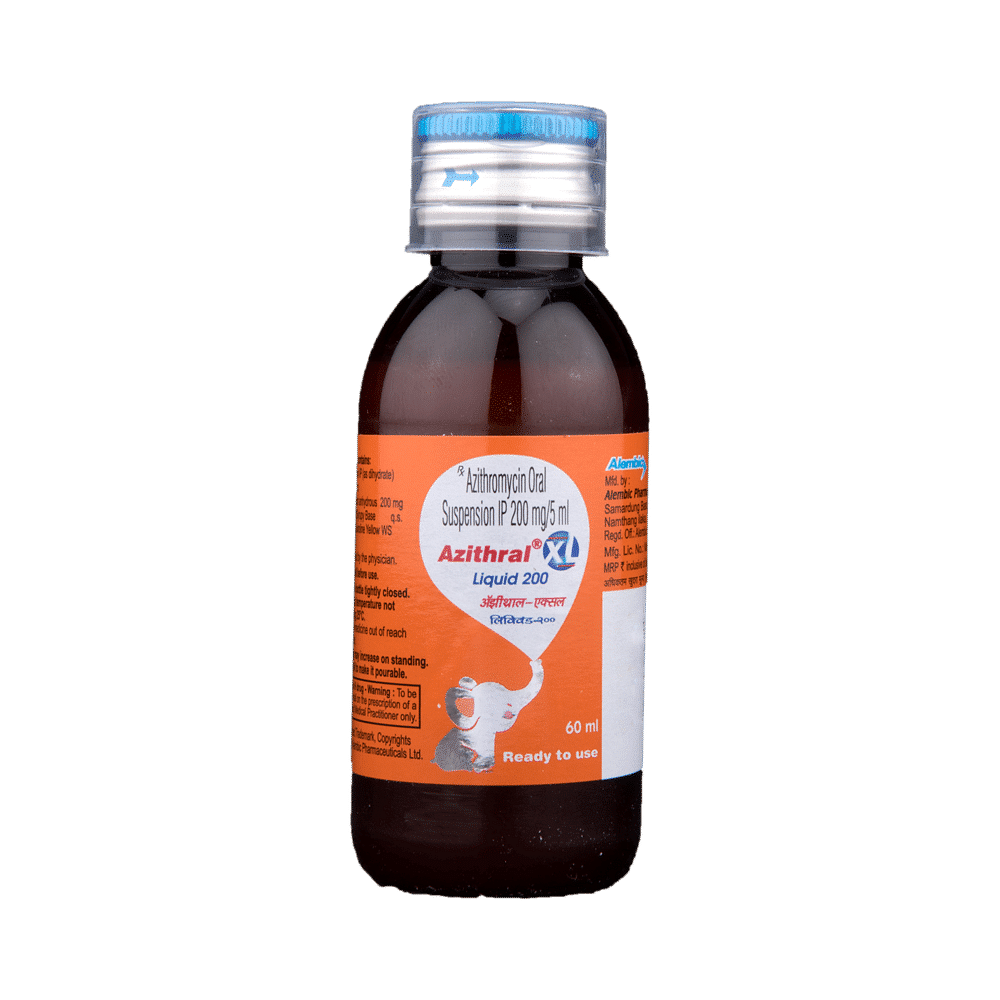
Azithral-XL 200 Liquid

Azee XL 200mg Liquid Peppermint & Orange

Azipril 200 Oral Suspension

Rapvary 200mg Oral Suspension
Frequently asked questions
What happens if I accidentally give my child too much Azirud 200 Suspension Strawberry?
If an extra dose of Azirud 200 Suspension Strawberry is given by mistake, it is unlikely to cause harm. However, if you suspect your child has taken too much, contact their doctor immediately. An overdose may lead to unwanted side effects and potentially worsen the underlying condition.
Are there any serious potential side effects associated with Azirud 200 Suspension Strawberry?
Some rare but serious side effects of Azirud 200 Suspension Strawberry include persistent vomiting, kidney damage, severe allergic reactions, diarrhea, and gastrointestinal infections. If your child experiences any of these symptoms, seek medical attention promptly.
Can other medications be taken alongside Azirud 200 Suspension Strawberry?
It is essential to inform the doctor about any other medications your child is taking before starting Azirud 200 Suspension Strawberry. Additionally, consult with their doctor before administering any new medicines while on treatment with Azirud 200 Suspension Strawberry.
Can children be vaccinated while taking Azirud 200 Suspension Strawberry?
Antibiotics generally do not interfere with vaccines or cause adverse reactions in children who have recently been vaccinated. However, it is recommended to delay vaccination until the child has recovered from their illness and the antibiotic course has been completed.
What laboratory tests may be required for my child while taking Azirud 200 Suspension Strawberry long-term?
The doctor might recommend periodic kidney function tests and liver function tests to monitor your child's condition and adjust treatment as necessary.
How can Azirud 200 Suspension Strawberry affect digestion in children?
Children may experience stomach upset when taking antibiotics, including Azirud 200 Suspension Strawberry. The medication can also disrupt the balance of good bacteria in their gastrointestinal tract, potentially leading to increased risk of developing other infections. If your child experiences diarrhea while on treatment, consult with their doctor for guidance.
Why is Azirud 200 Suspension Strawberry prescribed for a specific duration?
The length of treatment depends on the type and severity of the infection being treated, as well as the age of the patient. While some bacterial infections may be treated with a single dose or a short course, others might require longer treatment periods. Always follow the regimen recommended by your child's doctor.
What precautions should I take while taking Azirud 200 Suspension Strawberry?
It is generally advised to avoid taking antacids with Azirud 200 Suspension Strawberry as they can affect its effectiveness. Additionally, be cautious when exposing your child to sunlight or tanning beds, as the medication may increase their risk of sunburn.
Is Azirud 200 Suspension Strawberry a strong antibiotic?
Compared to other antibiotics, Azirud 200 Suspension Strawberry has a longer half-life, which allows it to stay in the body for an extended period. This means that it is typically given once a day and for a shorter duration than some other antibiotics.
Can taking Azirud 200 Suspension Strawberry lead to a yeast infection?
Some individuals may develop fungal or yeast infections, such as thrush, after taking Azirud 200 Suspension Strawberry. This can occur when the antibiotic kills off good bacteria in the body, allowing harmful fungi to overgrow. If your child experiences symptoms like soreness, itching, or discharge, inform their doctor.


